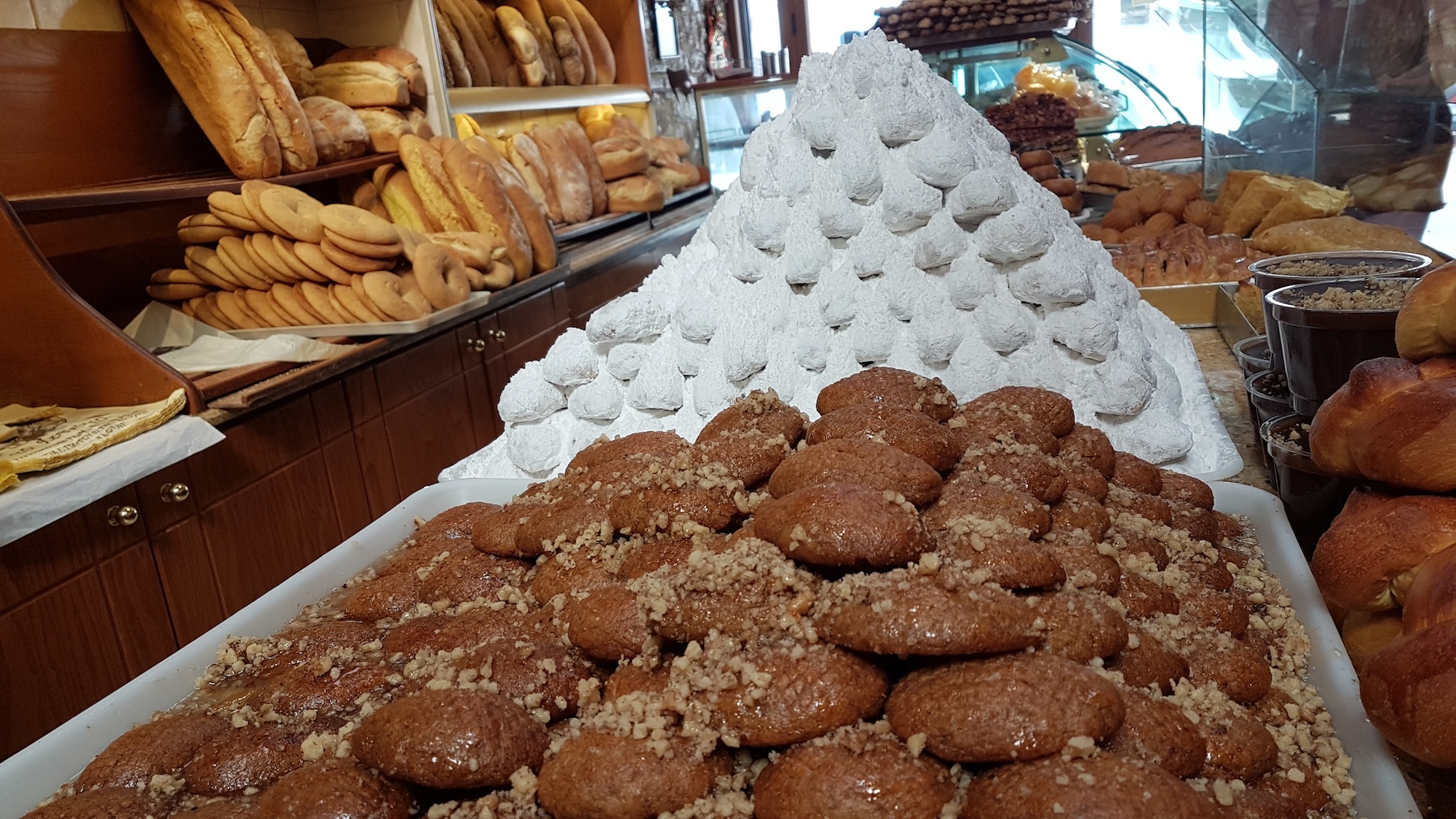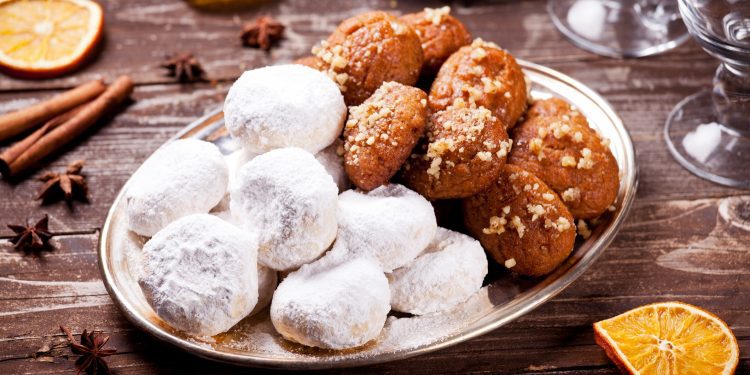When Christmas approaches in Greece, the air fills with the delightful aromas of melomakarona and kourabiedes, the country’s two most beloved holiday sweets. These traditional treats are staples of the Greek festive season, and every household takes pride in baking (and debating) which one reigns supreme. While both are undeniably delicious, they couldn’t be more different in flavor, texture, and preparation.
Let’s explore the history, ingredients, and traditions behind melomakarona and kourabiedes to determine which dessert truly deserves the spotlight on your Christmas table.
1. Melomakarona: The Honey-Soaked Favorite
Melomakarona are soft, oval-shaped cookies made with olive oil, orange juice, and semolina, flavored with spices like cinnamon, cloves, and nutmeg. Once baked to golden perfection, they are soaked in a syrup of honey, sugar, and water, then sprinkled generously with crushed walnuts.
These aromatic cookies are a true representation of the Mediterranean palate, with their warm spices and the natural sweetness of honey. The olive oil in the recipe gives them a tender, melt-in-your-mouth texture, while the syrup and nuts add a satisfying contrast of sticky and crunchy.
Origins and Traditions:
Melomakarona are believed to date back to ancient Greece, where a similar treat known as “makaria” was served at funerals. Over time, the recipe evolved to become a celebratory dessert infused with honey and spices, symbolizing prosperity and joy during the Christmas season.
Why People Love Them:
- Their fragrant aroma fills the house, creating a festive atmosphere.
- They pair perfectly with a cup of Greek coffee or tea.
- They’re relatively light compared to other holiday desserts, thanks to their olive oil base.
2. Kourabiedes: The Powdery Delight
Kourabiedes, on the other hand, are rich, buttery shortbread cookies, often made with almonds and flavored with a splash of brandy or ouzo. After baking, they are generously dusted with powdered sugar, creating a snow-like coating that’s perfect for the Christmas season.
These crumbly, sweet treats are the definition of indulgence. The butter gives them a decadent, melt-in-your-mouth texture, while the almonds add a subtle crunch. They’re a favorite among those who love classic, buttery desserts.
Origins and Traditions:
Kourabiedes are said to have been influenced by Middle Eastern and Turkish cuisines, with their use of nuts and powdered sugar. They became a staple of Greek Christmas celebrations, symbolizing purity and joy with their snowy white appearance.
Why People Love Them:
- Their buttery richness makes them irresistible.
- They’re a visual delight, resembling little snowballs on a festive plate.
- They’re the ultimate comfort food, perfect for winter evenings by the fire.

3. The Great Debate: Which Is Better?
The rivalry between melomakarona and kourabiedes is a lighthearted yet passionate topic in Greek households. Some swear by the nutty, syrupy goodness of melomakarona, while others can’t resist the buttery, powdery allure of kourabiedes. Ultimately, it comes down to personal preference, but here are a few factors to consider:
Flavor Profile:
- Melomakarona: Warm, spiced, and honeyed.
- Kourabiedes: Rich, buttery, and nutty.
Texture:
- Melomakarona: Soft and tender with a sticky syrup coating.
- Kourabiedes: Crumbly and delicate, with a melt-in-your-mouth feel.
Appearance:
- Melomakarona: Golden brown, topped with crushed walnuts.
- Kourabiedes: Pure white, dusted with powdered sugar.
4. Why Not Both?
While the debate continues, the best answer might simply be to embrace both! In Greece, it’s common to see platters with both melomakarona and kourabiedes side by side, offering guests a choice of flavors and textures. Each cookie brings its own charm to the Christmas table, and together, they represent the warmth, joy, and generosity of the season.
For adventurous bakers, why not try making both? The process of baking these traditional treats is a wonderful way to immerse yourself in Greek culture and fill your home with the comforting scents of Christmas.
5. Final Thoughts
Whether you’re team melomakarona or team kourabiedes, there’s no denying that both desserts hold a special place in Greek Christmas traditions. Each bite tells a story of heritage, family, and the joy of the festive season. So, this Christmas, treat yourself to the best of both worlds and celebrate the delicious rivalry that makes Greek holidays so sweet.










